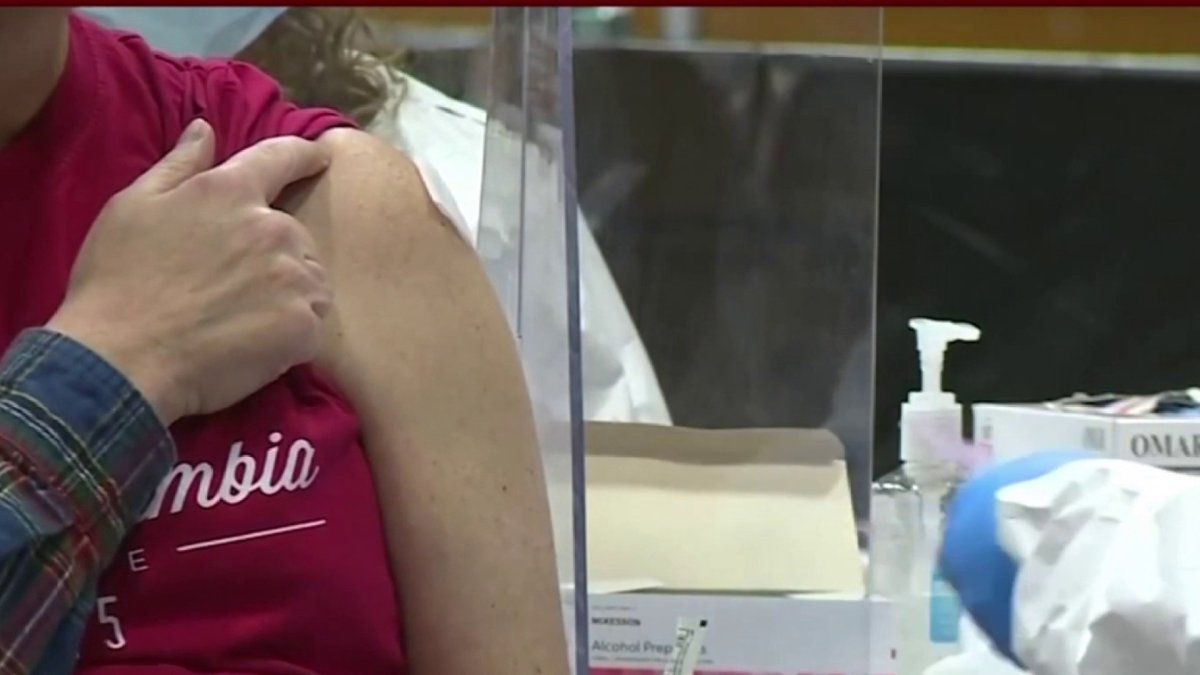
One doctor NBC 7’s Allie Raffa spoke with said he’s concerned the booster could cause more vaccine skepticism among unvaccinated people but also less confidence in the shot among those who have already gotten it.
As COVID-19 cases and hospitalizations continue to surge across the country, federal health officials are expected to recommend vaccine boosters for most Americans.
The shots would be given eight months after the second dose of the Pfizer or Moderna vaccines, and would start to be administered as early as mid-September, pending full FDA approval of both vaccines. Third doses are already being administered to immunocompromised people after the CDC cleared the added layer of protection last week.
According to the CDC, just under 60% of eligible Americans are fully vaccinated – well below where the Biden administration hoped the country would be by now.
Reaction to news of the booster shots among San Diegans was mixed.
Get San Diego local news, weather forecasts, sports and lifestyle stories to your inbox. Sign up for NBC San Diego newsletters.
Jakie Satterwhite and Melanie Rivero told NBC 7 they were some of the first people in line to get vaccinated when they became eligible -- and that’s exactly where they say they will be when they can get a booster shot.
“Let's get this over with,” Satterwhite said, “so we don't have to go back into lockdown. If we have to get boosters for the rest of our lives to get as back to normal as we can be, I'm on board for that.”
Their opinion of the vaccine hasn’t changed – even after learning of the booster shots.
Local
“It's just what we do,” added Rivero, who works in the health care field. “We do it with the flu. It's what we do with other things. We need to let the data inform our decisions.”
The CDC hasn’t released any findings yet on how much protection the vaccines offer as time passes, but the move toward boosters comes as new data from Israel shows the level of protection in people who received Pfizer’s vaccine is waning – and COVID-19 cases, almost entirely among unvaccinated people, spike nationwide.
“First it’s the masks, then the vaccine, and then it’s a second dose and a third dose,” Michelle Seltzer said.
Seltzer hasn’t gotten the coronavirus vaccine and told NBC 7 that hearing about the booster makes her even more skeptical of it.
“I truly believe that noncompliance is our only way out of this," Seltzer said. "If you give someone an inch, they're going to take a mile, and that's what we're seeing right now."
It's that mindset that continues to worry doctors like Sharp HealthCare otolaryngologist Paul Schalch Lepe as they face a monumental challenge: Changing the minds of tens of millions of people holding out on getting vaccinated – while encouraging over 160 million vaccinated people to get a booster when it’s available.
“Getting a booster shot doesn't mean that vaccines don't work,” Schalch Lepe said. “Booster shots are just one way to stay ahead of the curve. We all have to do our part to keep this virus from spreading and finally put an end to this. I fear that until people experience this firsthand, either by seeing someone that gets sick or have a relative get really sick, or lose their life from the infection, it just doesn't sink in.”
Health care workers and nursing home residents who received Pfizer’s vaccine when it was first available are nearing the eight-month mark since becoming fully vaccinated, so they’ll likely be the first eligible to get the boosters when they become available.
Federal health officials are still collecting information about the single-shot Johnson & Johnson vaccine, which was approved in the U.S. in late February, to determine if and when to recommend a booster shot.